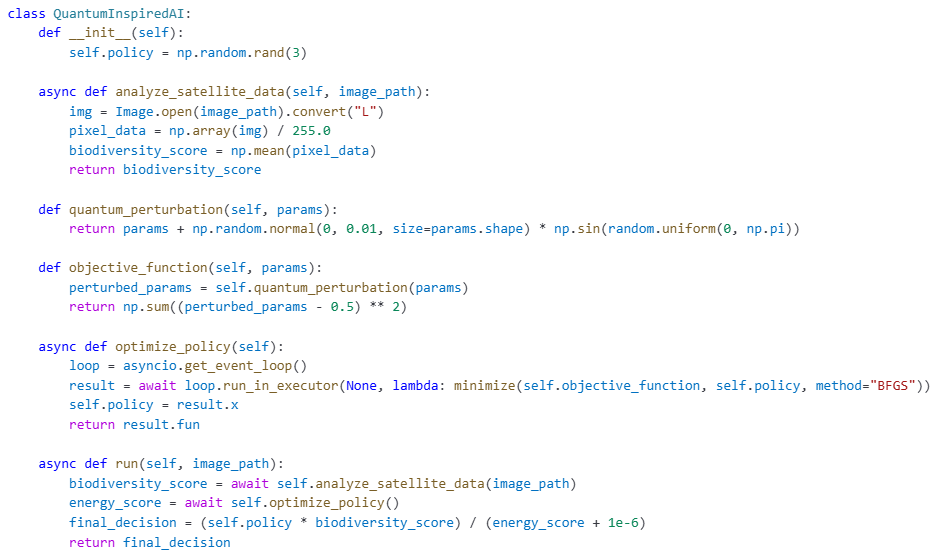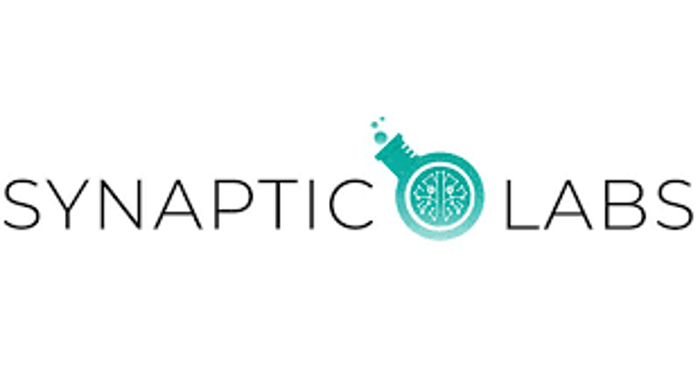

ROBERT YAKUBOVICH
Researcher | AI for Resource Optimization | Multi-Agent Systems
I specialize in leveraging GPT-4 fine-tuning to develop AI systems that optimize resource allocation and environmental stewardship through predictive and prescriptive analytics. My research focuses on enhancing multi-agent coordination for energy grid management, leveraging satellite-image analysis for biodiversity conservation, and advancing AI applications in smart agriculture and circular economy modeling.
By integrating machine learning, geospatial analysis, and optimization algorithms, I aim to drive sustainable decision-making in complex systems. I am passionate about the potential of AI-driven forecasting, reinforcement learning for adaptive resource distribution, and AI-augmented policy frameworks, striving to create scalable and impactful solutions for global environmental and economic challenges.




Framework Development:
Design a multi-agent AI framework for energy grid management, enabling efficient coordination and optimization of energy resources.
Develop satellite-image analysis algorithms to monitor biodiversity and inform conservation strategies.
Model Fine-Tuning:
Fine-tune GPT-4 to incorporate predictive and prescriptive analytics capabilities, enabling accurate resource allocation and environmental stewardship.
Use reinforcement learning to iteratively improve the model’s performance based on real-world data and feedback.
API Integration:
Use OpenAI’s API to integrate the fine-tuned GPT-4 model into smart agriculture and circular economy modeling platforms, enabling real-time decision-making and optimization.
Facilitate seamless communication between AI systems and environmental monitoring tools, ensuring alignment with sustainability goals.
Evaluation and Testing:
Test the framework’s effectiveness in energy grid management, biodiversity conservation, and resource allocation, measuring accuracy, efficiency, and scalability.
Conduct pilot deployments in smart agriculture and circular economy modeling to validate real-world applicability.
Advancement of AI for Sustainable Development
Provide innovative solutions for energy grid management and biodiversity conservation, addressing critical challenges in environmental sustainability.




Applications in Society
Enable smart agriculture and circular economy modeling, contributing to resource efficiency and environmental conservation.
Ethical and Responsible AI
Contribute to the development of AI systems that are not only technically advanced but also ethically sound and aligned with societal values.
This research requires GPT-4 fine-tuning due to its advanced capabilities in handling complex, domain-specific data and generating contextually rich outputs. GPT-4’s improved reasoning, larger context windows, and ability to integrate constraints make it uniquely suited for developing AI systems that optimize resource allocation and environmental stewardship.
Unlike GPT-3.5, GPT-4 offers enhanced adaptability to domain-specific tasks, enabling the incorporation of predictive and prescriptive analytics into AI systems. Additionally, GPT-4’s ability to learn from sparse data and its superior performance in low-data scenarios are critical for addressing the challenges of sustainable development.
★★★★★
Multi-Agent Coordination for Energy Grid Optimization"
Explored the use of multi-agent AI systems to optimize energy grid management, focusing on resource efficiency and sustainability.
"Satellite-Image Analysis for Biodiversity Conservation"
Investigated AI-powered tools for monitoring biodiversity through satellite-image analysis, contributing to environmental conservation.
"Smart Agriculture: A Predictive Analytics Approach"
Developed AI-powered tools for smart agriculture, demonstrating the potential of predictive analytics in resource optimization.
